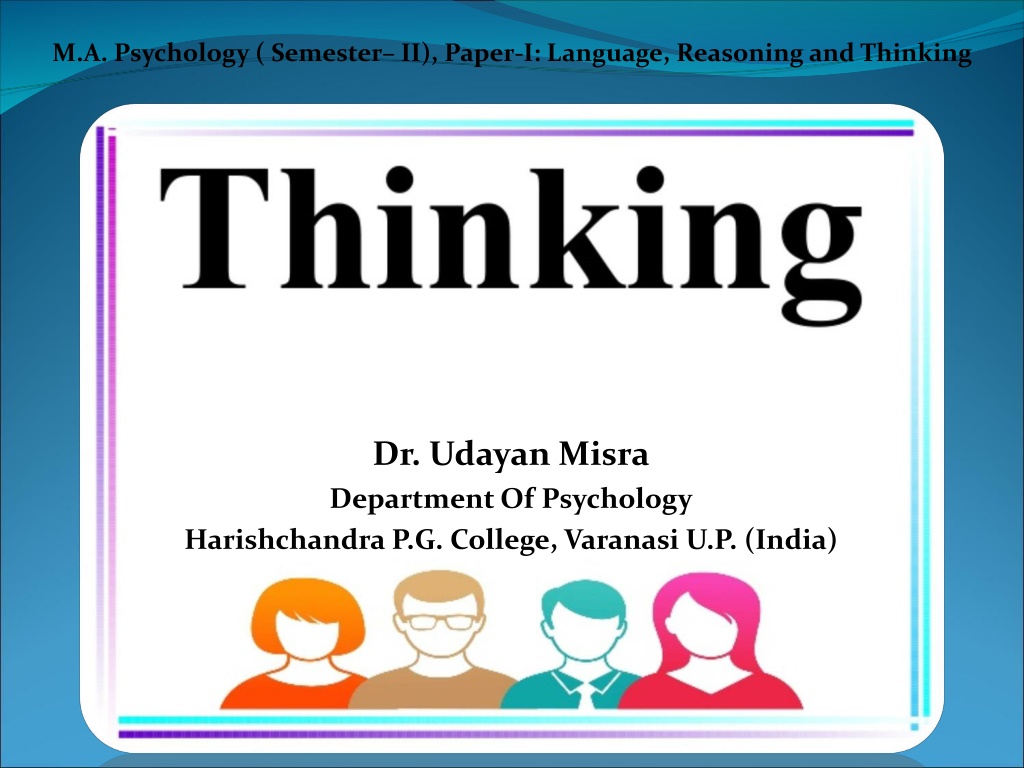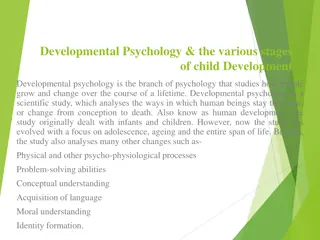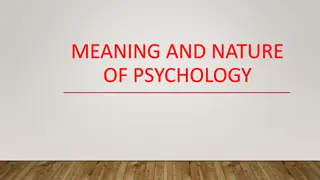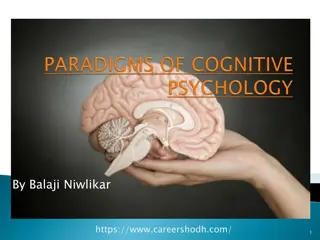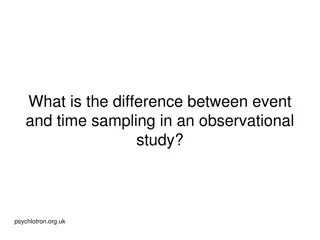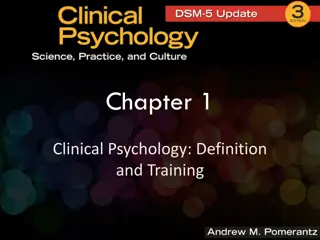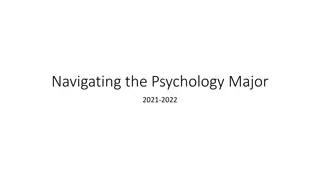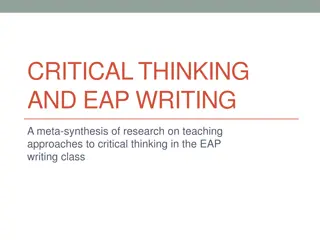Understanding Different Types of Thinking in Psychology
Thinking is a complex mental process that involves manipulation of information to find solutions or make decisions. This process includes concepts, propositions, and images and can be goal-oriented and influenced by past experiences. Different types of thinking include Autistic, Realistic, Convergent, Divergent/Creative, and Evaluative thinking, each with its characteristics and applications in problem-solving.
Download Presentation

Please find below an Image/Link to download the presentation.
The content on the website is provided AS IS for your information and personal use only. It may not be sold, licensed, or shared on other websites without obtaining consent from the author. Download presentation by click this link. If you encounter any issues during the download, it is possible that the publisher has removed the file from their server.
E N D
Presentation Transcript
M.A. Psychology ( Semester II), Paper-I: Language, Reasoning and Thinking Dr. Udayan Misra Department Of Psychology Harishchandra P.G. College, Varanasi U.P. (India)
Definitions: Thinking is a process that enables us to find solutions to problems representation of stimuli and events. by using symbolic Thinking concepts, propositions and images. - Silverman (1978) mental manipulation involves of - Baron (1992)
Thinking (also called thought) is the mental process in which to be involved mental manipulation of information, concepts, propositions or images to solve the problem or to make decisions.
Characteristics: it is an implicit mental process. It involves mental manipulation. It is goal/solution-oriented. Past experiences are involved. It has covert trial & error efforts. It has motivation. It is analytical activities.
Types of Thinking Autistic Thinking Realistic Thinking Convergent Thinking Divergent/ Creative Thinking Evaluative Thinking
Autistic Thinking: Autistic thinking is a type of mental activity (egocentric thought processes )in which focus is directed inward and little or no relation to reality. Daydreaming and fantasies are common elements of autistic thinking.
Realistic thinking Realistic thinking Realistic thinking means looking at all aspects of a situation (the positive, the negative, and the neutral) before making conclusions. In other words, realistic thinking means looking at yourself, others, and the world in a balanced and fair way.
Convergent thinking Convergent thinking Convergent thinking is a term coined by Joy Paul Guilford as the opposite of divergent thinking. It is the process of finding a single best solution to a problem that you are trying to solve. that do not require significant creativity, for instance in most tasks in school and on standardized multiple-choice tests for intelligence.
Divergent thinking Divergent thinking Divergent thinking refers to a way of solving problems wherein a variety of possible solutions are proposed in an effort to find one that works. It is against to convergent thinking and typically occurs in a spontaneous, free-flowing, "non-linear" manner, such that many ideas are generated in an emergent cognitive fashion.
Evaluative Thinking Evaluative Thinking Evaluative Thinking is a cognitive process in the context of evaluation, motivated by an attitude of inquisitiveness and a belief in the value of evidence, that involves skills such as identifying assumptions, posing thoughtful questions, pursuing deeper understanding through reflection and perspective taking and .
